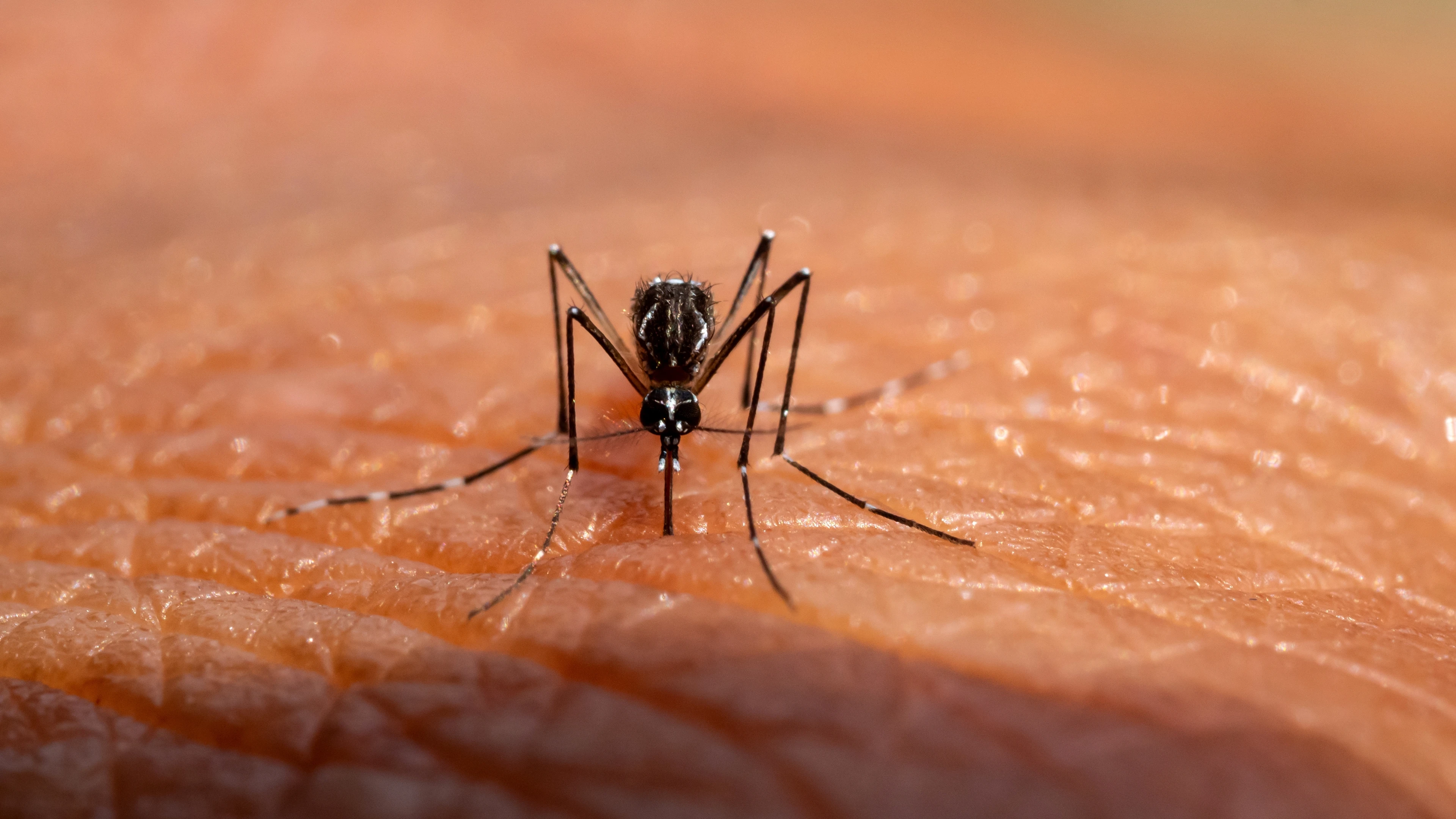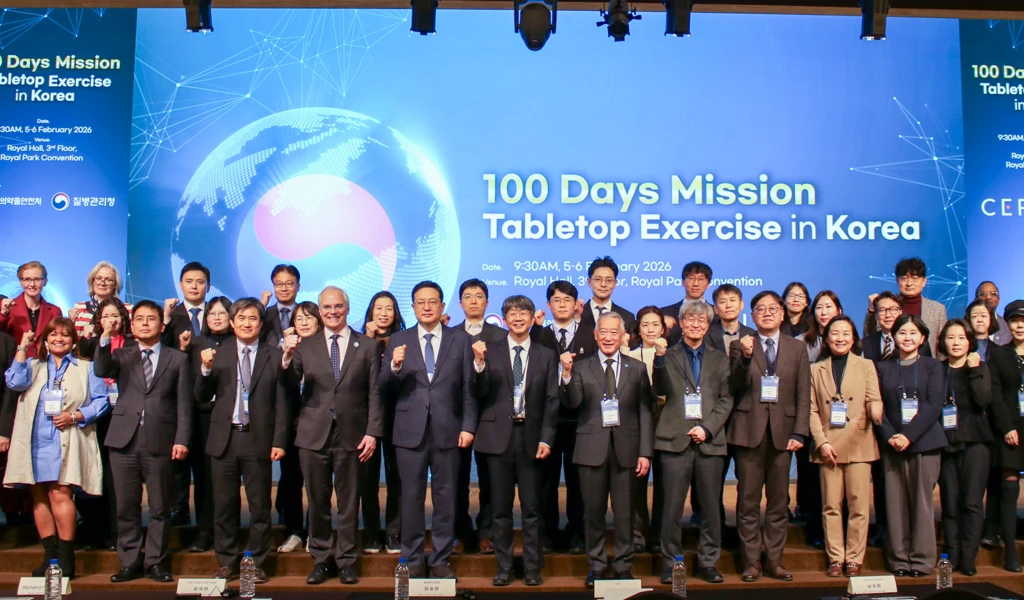Countries in the Southern Cone region in South America, particularly Paraguay and Brazil, are currently experiencing large outbreaks of chikungunya fever, a disease transmitted by the Aedes mosquito, which is also responsible for spreading dengue and Zika viruses. Since October 2022, over 167,000 cases (263 deaths) have been reported in Paraguay and over 124,000 cases (25 deaths) have been reported in Brazil.
The size and frequency of outbreaks over the past few years, as well as the increased number of deaths resulting from chikungunya, led to the release of a epidemiological alert by the Pan American Health Organization in March 2023.
"At present no licensed vaccines against Chikungunya are available", explained Dr Tim Endy, Project Leader for CEPI's Chikungunya Vaccine Programme. "However, several advanced candidates are either approaching or are undergoing regulatory review, including a live-attenuated candidate being developed by Valneva with support from CEPI and the European Commission".
The March of Chikungunya
Chikungunya virus was first identified in Tanzania in the 1950s, and since then, cases have been identified in many countries in Africa and Asia. In 2004, the virus re-emerged in Kenya and spread into countries in and around the Indian Ocean, infecting millions and causing significant morbidity and straining health systems in many low-income settings. Since then, cases of Chikungunya have been reported in Europe, causing an outbreak in Italy in 2007.
There are still a lot of gaps in our knowledge of Chikungunya's epidemiology. It's still not fully understood, as we're witnessing with the unusually intense outbreak in Paraguay
The threat posed by Chikungunya, and other mosquito-borne diseases, is likely to intensify in coming years due to the impact of climate change. For example, a warming planet will lead to the expansion by thousands of miles of regions in which two of the most important mosquito vectors of disease—Aedes Aegypti and Aedes albopictus—can thrive and multiply.
Neil Cherian, a Senior Program Manager working on CEPI's Chikungunya portfolio, explained that as developers proceed with clinical testing in Phase 3 studies, ensuring the quality, standardisation, and harmonisation of laboratory testing of clinical samples is crucial for accurate assessment of vaccine efficacy. Incorporation of the established international standard, recently endorsed by the WHO, into such testing will be crucial to measure vaccine performance and provide additional data for vaccine suitability in specific groups such as children, people who are immunocompromised, and pregnant women. Cherian and colleagues recently published a paper in NPJ Vaccines examining the strategic considerations for developing a Chikungunya vaccine and enabling equitable access for endemic countries.
"There are still a lot of gaps in our knowledge of Chikungunya's epidemiology. It's still not fully understood, as we're witnessing with the unusually intense outbreak in Paraguay", said Cherian. "For instance, long-term population immunity is not well-understood nor is the duration of population protection, factors which can affect the planning and implementation of vaccine trials".
Further impeding the world's understanding of this virus is the absence of long-term surveillance programmes and prevalence data in affected or endemic regions (such as Africa, Latin America, and Southeast Asia). The lack of such surveillance data, coupled with the unpredictable outbreak patterns of the virus, have made the conduct of randomised vaccine efficacy studies challenging.
Continuing R&D to expand vaccine access
Despite these hurdles, licensure of the first Chikungunya vaccines is within reach. However, at first, they will likely only be available for use in adults (18 years or older) in relatively few high-income markets. Before the vaccines are licensed for use in countries where Chikungunya is endemic — and where the disease burden is greatest —further data from extended phase 3 and phase 4 (or effectiveness) studies will be required to establish long-term safety of the vaccine and to answer critical questions to help health authorities to plan vaccine roll-out strategies, such as: should endemic countries include potential Chikungunya vaccines in routine immunisation programmes or as an outbreak response vaccine? What volumes of vaccine would be needed in these scenarios? How will sufficient volumes of vaccine be procured?
Now, nearly 75 years on since the discovery of this debilitating disease, the prospect of a safe and effective Chikungunya vaccine is tantalisingly close
"In parallel to the generation of effectiveness data, it will be crucial for global health authorities and developers to work together to facilitate uptake and use of these vaccines in advance of licensure and provide regulators in affected countries with necessary data to optimise use of Chikungunya vaccines for their populations", Endy explained.
To help address the outstanding R&D questions and, ultimately, support the roll out of Chikungunya vaccines in endemic countries, CEPI and the European Commission have issued a recent call for proposals, worth up to €50 million, to fund effectiveness studies and further scientific studies to help expand the potential use of licensed Chikungunya vaccines for children, people who are immunocompromised, and pregnant women.
Between 2010 and 2019, Chikungunya caused an average yearly loss of over 106,000 disability-adjusted life years (ie, the loss of the equivalent of one year of full health). "Now, nearly 75 years on since the discovery of this debilitating disease, the prospect of a safe and effective Chikungunya vaccine is tantalisingly close", reflected Endy. "Through its R&D investments CEPI is working to enable access to these promising Chikungunya vaccine candidates. It will be vital for private-sector and public-sector partners to continue to work together to ensure the most vulnerable people can access and benefit from these innovations."
Learn more about CEPI's latest Chikungunya funding call here.
*Article updated August 18, 2023.



.webp)